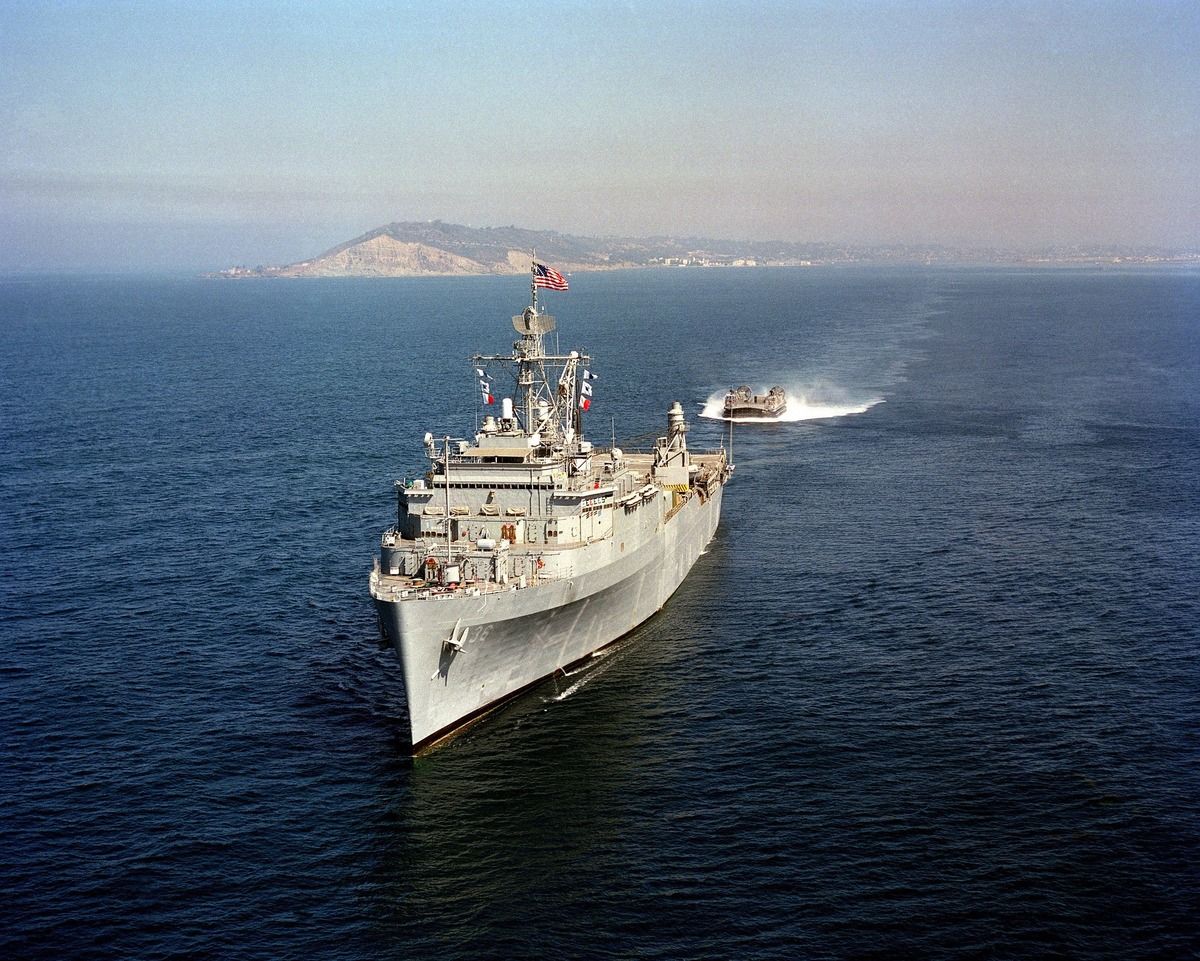
"The most important thing in intelligence work is finding the connections between things that seem unrelated."
Intelligence Fun Fact:
Did you know that during the Cold War, the United States and the Soviet Union used dolphins and other marine animals for intelligence gathering and military operations? Both countries trained these animals to detect underwater mines and carry out different water-related tasks.
Weekend Insights
The current global power struggles are characterized by the rise of China and its assertiveness in the South China Sea, North Korea's continued nuclear ambitions, and the increasing involvement of smaller countries and non-state actors in regional conflicts.
China's assertiveness in the South China Sea has been a major concern for neighboring countries such as Vietnam, the Philippines, and Malaysia. China has been building military bases on artificial islands in the disputed waters, leading to tensions and occasional skirmishes with other claimants to the area. Additionally, China's Belt and Road Initiative has sparked concerns among smaller countries in the region about the potential for debt-trap diplomacy and China's growing influence.
North Korea's continued nuclear ambitions have raised the stakes in the already-tense relationship between the country and the United States. Despite international sanctions and diplomatic pressure, North Korea has continued to develop its nuclear capabilities, and its recent claims of testing an underwater nuclear-capable drone have only heightened concerns about its military capabilities.
Smaller countries and non-state actors have also become increasingly involved in regional conflicts, adding to the complexity of global power struggles. For example, in the Middle East, the conflict in Syria has drawn in multiple regional players, including Iran, Turkey, and Saudi Arabia, as well as non-state actors such as ISIS and Kurdish militias. Similarly, in Yemen, the Houthi rebels have received support from Iran. At the same time, a coalition led by Saudi Arabia has been supporting the Yemeni government. The involvement of these smaller players has made it difficult to resolve these conflicts and has contributed to the ongoing instability in the region.
Headlines
Geopolitical Tensions Rise as Taiwan and China Engage in a Military Standoff

China's military presence in the South China Sea has been a point of contention for many years. This weekend, tensions escalated with the Chinese government conducting a series of military exercises in the region. These exercises involve the use of advanced weaponry and are seen as a show of force by China. In response, neighboring countries like Vietnam, the Philippines, and Malaysia have expressed concern about China's territorial ambitions and its increasing military capabilities.
Analyst Comment:
Due to the recent military drills within the Taiwan Strait, a recent standoff between Chinese and Taiwanese military ships has added to the tension in the region. Taiwan, which China claims as part of its territory, has seen an increase in Chinese military activity around its borders. The incident involved Chinese warships entering Taiwanese territorial waters, and Taiwan responding by dispatching its own naval vessels to monitor the situation. This incident highlights the potential for conflict between China and Taiwan, which could further destabilize the region.
The geopolitical implications of China's actions in the South China Sea and its military buildup are significant. China's increasing military presence in the region threatens the security of its neighboring countries and has led to increased tensions in the region. The United States, which has a significant military presence in the region, has expressed concern about China's actions and has called for a peaceful resolution to the territorial disputes. The South China Sea is a vital shipping route and a significant source of natural resources, which makes it a strategically important region for the international community.
China's growing military capabilities and territorial ambitions have also led to concerns about the balance of power in the region. As China seeks to expand its influence and territory, other countries in the region may feel compelled to increase their own military capabilities. These actions could lead to an arms race in the region. This could have significant implications for global security and stability. As tensions continue to rise in the South China Sea, it is crucial for the international community to work together to find a peaceful and diplomatic resolution to the territorial disputes.
North Korea's Underwater Nuclear-Capable Drone Test Raises Concerns Over Global Security

North Korea has announced a successful test of a new long-range cruise missile that is capable of carrying a nuclear warhead. The missile, which is designed to be launched from submarines, was reportedly tested over the weekend and hailed by North Korean state media as a "strategic weapon of great significance." While the exact capabilities of the missile remain unclear, the announcement is a worrying development for the international community, particularly as North Korea continues to expand its nuclear capabilities.
Analyst Comment:
The test comes amid growing tensions on the Korean Peninsula. North Korea continues to pursue its nuclear and missile programs despite international sanctions and pressure. The country has conducted several missile tests in recent months, including tests of new short-range missiles that analysts believe could be capable of reaching the United States. The successful test of an underwater nuclear-capable drone also adds a new dimension to North Korea's nuclear program, potentially allowing the country to launch nuclear strikes from hard-to-detect underwater platforms.
The geopolitical implications of North Korea's nuclear program are significant, particularly as the country continues to develop more advanced and capable weapons systems. The international community has been attempting to curb North Korea's nuclear ambitions for decades but with limited success. North Korea remains one of the most isolated and secretive countries in the world. This makes it difficult for the international community to understand the true extent of its nuclear capabilities.
The development of a new long-range cruise missile, coupled with the successful test of an underwater nuclear-capable drone represents a significant challenge to global security and underscores the urgent need for a coordinated international response. The United States and its allies in the region will need to work together to develop a comprehensive strategy for dealing with North Korea's nuclear program. They must also address the underlying political and economic factors driving the country's pursuit of nuclear weapons.
Israel Strikes Syrian Targets After Rockets Fired: Tensions Escalate in Middle East

On Saturday, Israel conducted multiple strikes on military targets in Syria in response to rockets fired from Syrian territory into Israel. The Israeli military used artillery and drones to target a Syrian army compound and rocket launchers. Syrian air defenses reportedly intercepted some of the missiles. Although no casualties were reported, the incident marks the latest escalation in tensions between Israel and its regional neighbors.
Analyst Comment:
The ongoing conflict in Syria, which has drawn in multiple regional and international players, has contributed to the instability in the region. Citing security concerns, Israel has repeatedly conducted strikes on Syrian territory. Iran and its proxy groups, such as Hezbollah, have been supporting the Syrian government in the conflict. Additionally, Israel has been closely monitoring the activities of other non-state actors in the region. This includes Hamas and Islamic Jihad, both of which have fired rockets into Israel in recent days.
The situation in the Middle East remains precarious and unpredictable, with multiple actors vying for power and influence. The ongoing conflict in Syria, tensions between Israel and Iran, and the broader regional rivalry between Saudi Arabia and Iran have contributed to the complex geopolitical landscape of the region. Any escalation of tensions could have serious implications for regional and global security. This highlighted the need for continued efforts to reduce tensions and promote stability in the region.
Another potential consequence of the recent Israeli strikes in Syria is an escalation of tensions with Iran, which has been backing various militant groups in Syria and Lebanon. Israel sees Iran as a major threat to its security and has been conducting covert operations against Iranian interests in the region. However, these actions have also increased the risk of a wider conflict between the two countries. With Iran now reportedly planning an attack on U.S. bases in Syria, the situation in the region could rapidly deteriorate; and Israel may find itself drawn into a larger and more dangerous conflict. It will be crucial for regional and international actors to work towards de-escalating tensions and finding a peaceful solution to the ongoing conflicts in the Middle East.
Interesting Articles from the Weekend

Stay safe out there



